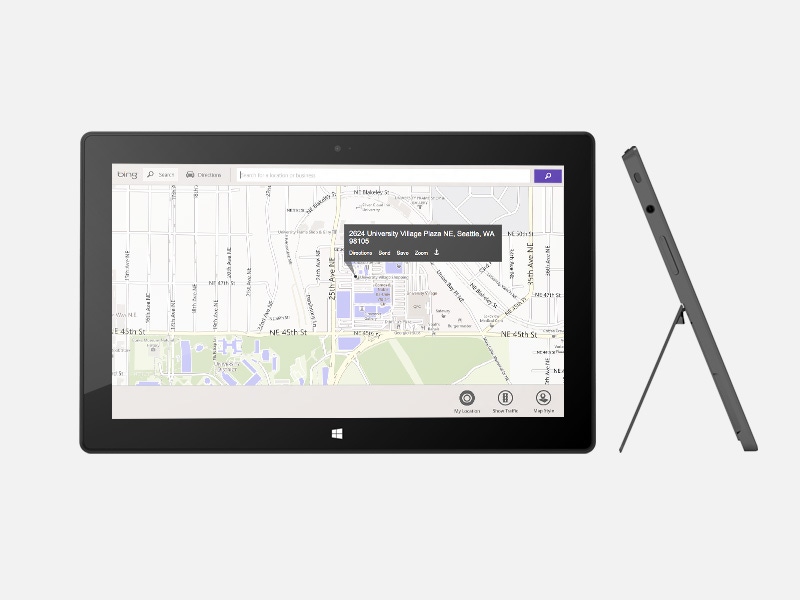Microsoft Surface Pro, Surface RT Tablets Gain Market Share
A new report says that Windows-based tablets from Microsoft (NASDAQ:MSFT) such as Surface Pro and Surface RT have made significant market share gains in the last year, as has Android-based tablets. Marketshare leader, iPad, has seen its huge lead diminish slightly.
April 26, 2013

Widely different reports have painted Microsoft Surface Pro and Surface RT Windows tablets as either dismal market failures or Microsoft's (NASDAQ:MSFT) greatest new product in years. Weighing in on the side of slowly building momentum behind Microsoft's first tablet device based on the Windows 8 operating system, market research organization Strategy Analytics reported Windows share of tablet operating systems has reached 7.4 percent globally year over year for Q1, up from 0 percent last year. Here are the details.
Apple still rules overall with 48.2 percent marketshare, down from 63.1 percent a year ago. And Android also saw significant growth to 43.4 percent market share in Q1 this year up from 34.2 — the biggest market share growth of all the operating systems.
Windows tablet results could have been better, according to King's report. He said that Microsoft's limited distribution, a shortage of top tier apps and confusion in the market has held back shipments of Windows tablets such as Surface Pro and Surface RT.
These market share numbers only reflect branded tablets. When white-box tablets are added into the mix, Android market share increases to 52 percent, according to Peter King, director of tablets at Strategy Analytics.
"Demand for tablets among consumer, business and education users remains strong," Strategy Analytics said in a statement.
And that means MSPs will be seeing more such devices on their customers' networks, and seeing more of a need for proper managment of these devices whether they are part of a bring-your-own-device program (BYOD) or a corporate-owned, personally-enabled (COPE) program.
About the Author(s)
You May Also Like


